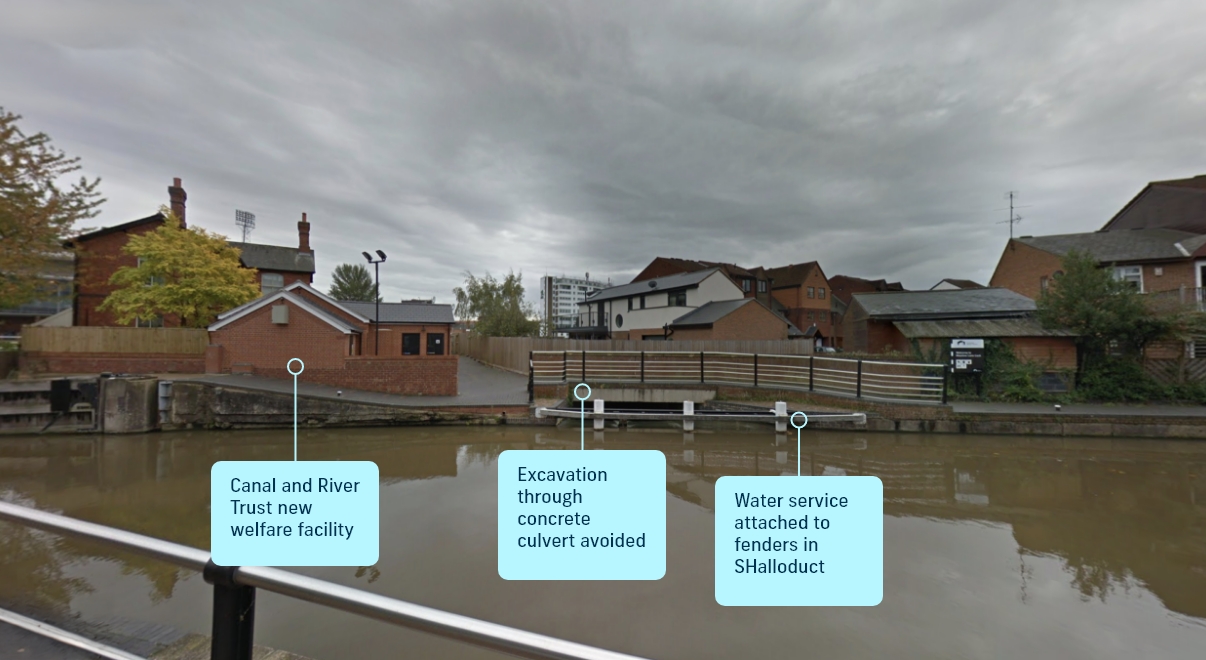
Who
Canal & River Trust (formerly British Waterways)What
SHalloductWhere
Meadow Lane Lock Welfare Facility, NottinghamWhen
Circa 2008At a glance
- Above-ground water supply solution for canal-side facilities
- Ideal for locations where excavation isn’t possible
- Provides insulation to prevent pipe freezing in cold weather
- Mounted securely to existing fendering for long-term stability
- Clean, professional finish with minimal disruption
- Installed in 2008 and still in full working order today
Tough Terrain, Smart Solution
When British Waterways (now Canal and River Trust) set out to build new welfare facilities for canal users near Meadow Lane Lock in Nottingham, they ran into a tricky challenge - how to get a water supply across a reinforced concrete culvert without traditional underground installation. They needed a robust, insulated solution that could handle both the environment and the weather. The answer? SHalloduct™ - a simple but effective above-ground alternative that’s still performing 17 years later.
To support a new welfare block – complete with toilets and showers – a water service connection needed to be routed to the site, situated alongside the Nottingham Canal. The issue? A reinforced concrete culvert stood directly in the path of the water main, making traditional excavation and buried pipe installation impossible.
British Waterways (now Canal & River Trust) needed a solution that didn’t just solve the installation issue, but also provided sufficient insulation to prevent freezing in winter – ensuring the facilities stayed functional all year round.
Products used
British Waterways turned to SHalloduct™ a versatile, durable solution designed to protect water pipes where burial isn’t an option. The Shalloduct system was fixed to existing steel fendering – the protective barriers for canal walls and culverts – allowing the pipe to sit securely above ground and out of harm’s way.
Not only did this method avoid the need for any excavation, but it also delivered the mechanical protection and thermal insulation needed to keep the water flowing even in freezing conditions.
Seventeen years later, that installation is still going strong – proof that when done right, even a challenging install can stand the test of time.
Back
